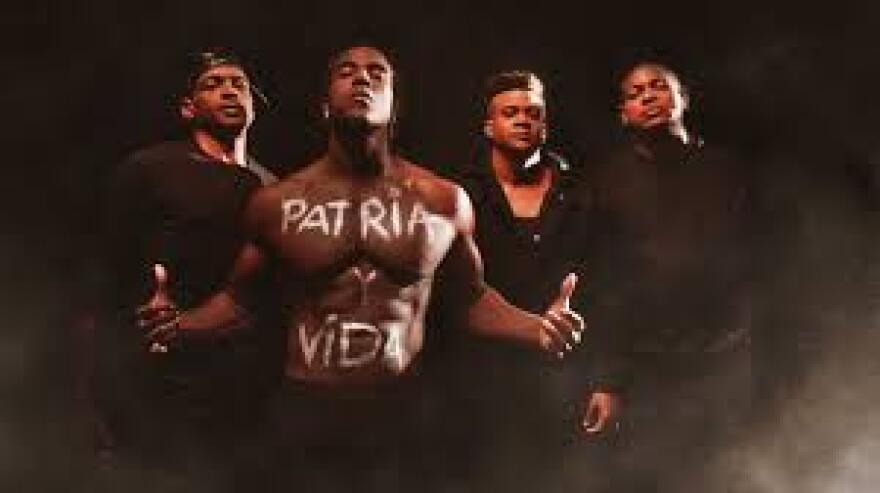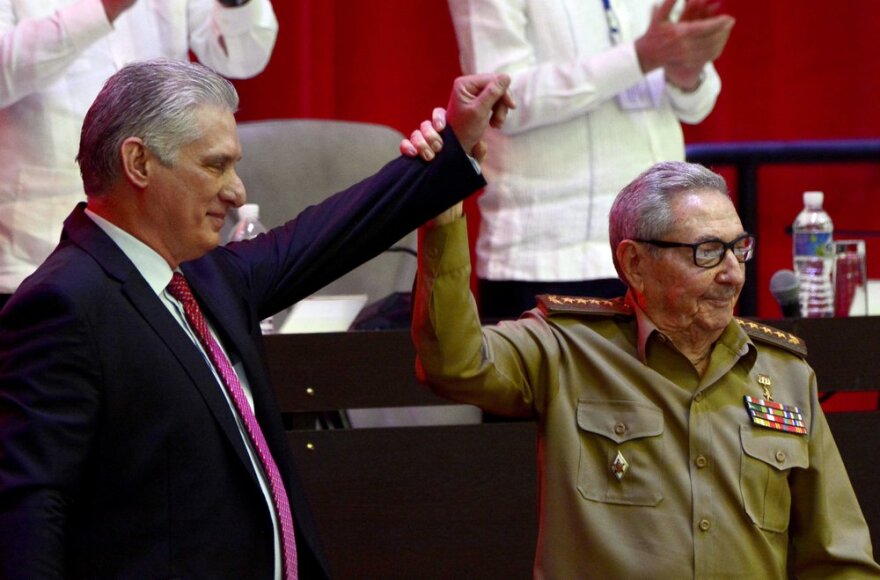On Monday, Cuba's ruling Communist Party finished its eighth Congress in Havana. Every five years the island's party leaders convene to set a course for government policy. This one was different because Raúl Castro, brother of the late dictator Fidel Castro, stepped down as Cuba's Communist Party leader.
WLRN’s Christine DiMattei spoke with Americas editor Tim Padgett about whether Raúl Castro's retirement means any real change could be coming in Cuba.
Excerpts from their conversation:
DIMATTEI: Tim, why is Raul Castro giving up leadership of Cuba's Communist Party?
PADGETT: Mainly because he's 89; he'll turn 90 in June. This is a big deal of course because it means that for the first time since Raúl’s late brother Fidel installed the Cuban Revolution 62 years ago, a Castro won't hold at least one of the two main reins of power in Cuba — the head of the government or the head of the Communist Party.
Raúl said it's time to pass those reins to “a new generation” that he's confident is “full of anti-imperialist passion and spirit.” He was referring mostly to the guy he picked to replace him as Cuba's top communist, Miguel Díaz-Canel (who turns 61 this week). Díaz-Canel is also president of Cuba — but being first secretary of the Communist Party is more important.
READ MORE: Party Time in Cuba - With Marx, Not Mojitos. Here's What the Congress May Do
This party congress took place at a pretty low moment for Cuba, both economically and politically. How tense are things on the island right now?
I think the island is even more stressed out than usual right now. The pandemic, the renewed sanctions former President Trump slapped on Cuba, and most of all the Cuban regime's stubborn socialist mismanagement have sunk the economy to a low we probably haven't seen in 30 years. All-important tourism revenue has dried up; in Havana right now you see incredibly long lines at stores because food's gotten so scarce.
And politically?
As you mentioned, also very tense. A free speech movement led by artists is showing staying power despite the regime's efforts to stifle it. And Cuba's younger generation is confronting the regime on social media in ways the regime is having trouble responding to — like the viral video Cuban rappers recently made called Patria y Vida (Homeland and Life) which slams the regime motto “Patria o Muerte” (Homeland or Death.)
So the younger generation of Cuban leadership you mentioned — what impact, if any, did they have on this Cuban congress?
Little if any — and that's the problem. Even though Raúl Castro and the old guard in military fatigues are technically retiring, they still manipulate Díaz-Canel and the younger leaders. They made sure, for example, the big slogan of this Communist Party Congress that just ended was “Continuity” — as in, we're sticking with this repressive, one-party government system; we're sticking with this failed centralized economic model.
In his keynote speech, Raúl even called the limited number of private entrepreneurs the regime allows “egoistas,” or selfish. And he shut the door on certain reforms those entrepreneurs were hoping for, like being able to import and export.

GETTING BURNED
And you think this is why the Biden Administration is not exactly rushing to open its arms to the Cuban government?
It's certainly a big reason. President Biden doesn't want to get burned the way former President Obama did five or six years ago when he opened up to Cuba and the regime responded by retrenching. I think Biden realizes that until Raúl and the old guard are no longer physically with us, nothing much is going to change there.
Does this mean the more hardline Cuban exiles here in South Florida still hold sway over Cuba policy, even though President Biden beat Donald Trump in November?
Well, Biden's caution doesn't mean he won't engage the regime to some extent, because completely isolating Cuba won't bring regime change in Cuba either — as Trump found out. But, yeah, as Biden formulates his own Cuba policy, I think he's at least listening to conservative exiles here more than perhaps Obama did.
What about Cuban Americans who want to get back to the kind of engagement with Cuba that President Obama started — but President Trump rolled back?
I think as they look at things like this Communist Party Congress, they'll actually be as resolved as ever that having the U.S. engage Cuba — including letting Americans travel there and have more contact with ordinary Cubans, which Biden looks poised to restore — is still the long-term solution to democratizing the island.
But they know that engagement has to be adjusted now — finding more creative ways to help movements like the artists for free speech, for example, those private business owners. As I mentioned, engagement that’s more cautious and creative, so that when Raúl and the old guard really are no longer with us, the U.S. will be in a better position to help effect change there — even if these Communist Party Congresses still won’t do it.
Copyright 2021 WLRN 91.3 FM. To see more, visit WLRN 91.3 FM.









